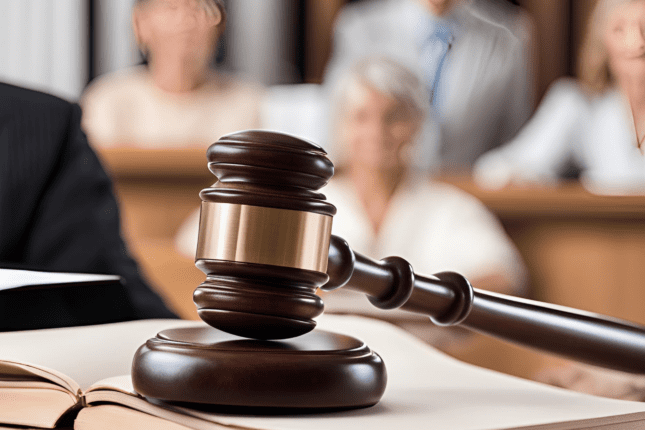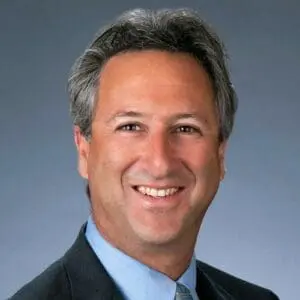Q: I’ve been asked to testify as an expert witness in a court case involving a contentious divorce with domestic violence accusations. What should I be prepared to encounter in the courtroom?
A: Testifying in court is quite an experience. Dramatic and fascinating, it can also be unnerving at times. I know because I’ve testified in 60 trials and served as a consultant in about 170. In one of my early courtroom appearances, I found myself sweating and my voice getting shaky on the stand as the cross-examining attorney, a real shark, was grilling me about my interpretation of the Minnesota Multiphasic Personality Inventory (MMPI) scores for the defendant I’d evaluated.
It should’ve been simple, but I was wary. I’ve been a clinical psychologist for 40 years, but I knew the expert witness for the other side was an MMPI expert, and I’m not. When the attorney asked a simple question—“What does K mean on the MMPI?”—I tried to find the right words to answer but choked on the possibility that I’d make a slight misstatement and then be discredited in front of everyone. I froze before stammering that I’d have to check my notes.
“Check your notes?” the attorney asked incredulously.
“Yes,” I murmured. It wasn’t my first humiliating moment on the stand, and it wouldn’t be the last. Every graduate student in psychology would be able to answer this one. But I had to “check my notes.”
Expert witness testimony isn’t for the faint of heart. I’ve seen some of the most respected experts in many fields reduced to looking shaky and insecure in the hands of a clever and aggressive attorney. But the truth is everybody looks bad on cross-examination, and the more I remind myself of that, the more I can tolerate feeling that way myself.
Therapists in Court
Mental health professionals may be asked to play any of several roles in a court case. One is material witness, also known as a fact witness. In this role, you’re not different from any other nonprofessional witness. You simply provide facts to be entered into evidence, such as what you observed when one partner verbally exploded in a couple’s session.
Another is a forensic consultant. This is when you have an area of expertise (domestic violence, substance abuse, or PTSD, for example), and the attorney wants advice about issues relevant to pursue in this case. In this role, you don’t actually have to testify or write a report. Instead, you might offer an attorney advice on how to challenge the testimony of an opposing expert witness or how to approach an emotionally fragile victim-witness in the least triggering way.
The most demanding role, as in my sweat-inducing example above, is that of an expert witness. To serve in this role, you need to be approved by the court and might be asked to testify blind, meaning presenting general information about your area of expertise and responding to hypothetical questions—also known as providing social-framework testimony or being an educational witness—without knowing the details of the case. But sometimes you’ll be asked to present case-specific testimony, which involves painstakingly reviewing discovery documents, court records, and interviews, and then conducting psychological assessments to write a report and/or testify in court about your insights into the events and evidence in a case. Despite our function as a disinterested party (someone who can provide an expert perspective), working on these cases is often complex and engrossing.
Here are four things to keep in mind about serving as an expert witness.
Stay true to what you believe. It’s important to remember that we aren’t attorney advocates; we’re independent evaluators. We can do an initial review of a case, but the attorney then has to decide if what we have to say is likely to help them. It’s not our job to match our evaluation to their hoped-for outcome. For example, I was once approached to evaluate a high-profile defendant accused of murdering their partner. The defense wanted to generate a portrait of this defendant as being abused as a child, and thus not legally responsible for their alleged crimes. It was a fascinating case, and I was tempted to get involved, but after extensive talks with the defense team, I had to tell them I could never offer what they wanted from me.
I got deep into another case where the prosecution wanted to debunk the defense’s contention that the defendant suffered from what was then known as battered women’s syndrome. I disagreed and they fired me—which was the appropriate thing to do. You don’t have to be 100 percent sure about a client’s guilt or innocence, but if you find that you could make a much more persuasive argument for the other side, it’s probably best to make that clear to the team seeking your testimony and respectfully bow out.
Importantly, if you do end up on the stand, don’t let the attorneys bully you into saying something you don’t believe. I worked on one case where the attorney wanted me to say that the victim’s behavior following an alleged sexual assault indicated that her story wasn’t credible. I told him that this wasn’t an argument I could reasonably make. Nevertheless, in his opening statement to the jury, he said, “My expert is prepared to testify that going online to seek out sex is completely incompatible with behavior after an alleged sexual assault by one’s partner.” I reiterated my position to him afterward, and he didn’t pursue that line of questioning once I got on the stand.
Even when your opinion is perfectly aligned with that of the attorneys, what you uncover in your clinical interviews can keep you off the stand. Several years ago, a defense attorney hired me to evaluate a woman accused of murder. She’d been a member of a cult, and the defense was claiming that she was operating under their coercive control. In my opinion, this position had merit. The problem? In my interview with her, she ended up revealing details about her actions on the night of the crime that the defense didn’t want revealed at trial. The attorney reluctantly fired me for knowing too much.
In another recent case, the defendant told me in the clinical interview that he’d been in a fugue state when the alleged assault took place, and really couldn’t say whether he’d done it or not. The defense team didn’t think this explanation would help his case with the jury. They didn’t want to put me on the stand and risk having me asked about this, so they chose not to have me testify but kept me on as a consultant.
In each of these situations, I had a perspective that would’ve been valuable to the judge and jury but never got to present it. I had to make my peace with that as part of what happens in this role.
Stay in your lane. I’m an expert in forensic issues related to intimate partner violence, with decades of experience treating domestic violence offenders and victims and developing treatment programs. But even though I have plenty of experience with related issues, like child custody, substance abuse, suicidality, or dissociative episodes, I’m not an expert on them. Still, many attorneys have tried to get me to opine about these once they have me working on a case.
It’s important to make clear that knowing something that most treatment providers know doesn’t make us experts. Expert witness status should be reserved for people with a special background in a particular aspect of our work. Don’t be seduced into offering expert opinions about something you’re not truly expert in.
Stay connected to the jury. I used to think that the process of direct examination and cross-examination was a conversation between two people: the lawyer and the person on the stand. But I’ve learned to look the jury in the eyes when I’m giving an extended answer, and only look directly at the attorney with short answers. Our job is to educate and develop a meaningful narrative of the case for jurors, and they’re more receptive when they feel we’re relating to them more personally and directly.
Stay focused. Being examined on the stand by the attorney whose team has hired you is your chance to shine. You’ll be getting softball questions designed to draw out your valuable wisdom and perspective, so you can take your time and elaborate on your answers.
But when the opposing attorney is cross-examining you, you need to shift gears. The correct answer to most questions during this part of the hearing is “yes,” “no,” or “I don’t know.” When I feel insecure about my position, I tend to talk too much and overexplain my point of view. That’s a “tell” for vulnerability, and every word I say at these moments gives the cross-examining attorney the opportunity to challenge me, so I’ve learned to rein myself in.
If an opposing attorney asks me, “So don’t you think it’s possible that the defendant has actually felt abused by the actions of the witness, rather than the other way around?” it’s tempting to answer, “Yes, but—.” But my answer should simply be “Yes.” Of course it’s possible, but I know to save the but for when the other attorney follows up in rebuttal and gives me plenty of room to clarify and expand on that answer.
The legal system operates on principles different from those of the clinical system. The court must make a black-or-white decision: guilty or not guilty. And attorneys have one simple goal: win the case. In contrast, clinicians are devoted to respecting nuance, complexity, context, and other challenging gray areas governing human behavior and relationship dynamics. It’s tempting to lose that perspective when attorneys are pushing us in one direction, but don’t get defensive. Be willing to say, “I don’t know,” or “I don’t understand this question.”
Those of us with therapy backgrounds, trained in how to understand the nuances of human behavior, are in demand in courtrooms. Our expertise has irrefutable value to judges and juries, but being on the stand can be an unnerving experience. If you choose to serve in this way, you may feel uncomfortable with the responsibility you carry to influence a legal outcome. But my advice is to remind yourself that you’re simply helping people make sound decisions—just as you do with your clients.
David Wexler
David B. Wexler, PhD, is executive director of the Relationship Training Institute, which provides education and treatment for relationships in conflict. He’s the author of seven books, including When Good Men Behave Badly and The STOP Domestic Violence Program.













